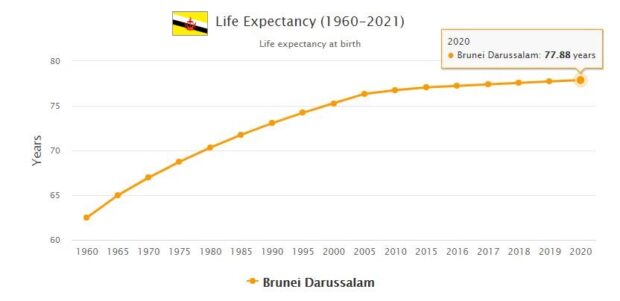Brunei is a country located in Southeast Asia, bordered by Malaysia to the north and east. According to homosociety, it has a population of around 440,000 people and an area of 5,765 square kilometers. The capital city is Bandar Seri Begawan while other major cities include Kuala Belait and Seria. The official language of Brunei is Malay but English is also widely spoken. The currency used in Brunei is the Brunei Dollar (BND) which is pegged to the Singapore Dollar at a rate of 1 BND : 0.746 SGD. Brunei has a rich culture with influences from both Islamic and Asian cultures, from traditional music such as Joget Melayu to unique art forms like Kain Tenunan songket weaving. It also boasts stunning natural landscapes such as the Ulu Temburong National Park and Tutong River which are home to an abundance of wildlife species.
Brunei is one of the oldest state institutions on Borneo and was in the past a hub of Southeast Asian trade. Written evidence exists for early contacts with India and China, at least since the late 900s. In connection with the commercial boom of the 14th century, Islam spread along the trade routes. Brunei then became a Muslim sultanate. Hassanal Bolkiah, who took office in 1967, is the 29th in the order of Sultans who ruled Brunei for a total of more than 400 years.
The heyday occurred during the 16th century, when Brunei mastered large parts of Borneo’s coastal areas and parts of the Philippine Archipelago Act. See abbreviationfinder for geography, history, society, politics, and economy of Brunei. The former capital Kota Batu (‘the stone city’) is today Borneo’s most extensive ruin area. It is described in overwhelming terms by the Italian seaman Pigafetta, the portrayal of Magalhae’s world voyage (1521). Centuries later, the power of the Sultanate shrank as Europeans took over trade in the area. During the second half of the 19th century, the Sultan was forced to resign from Sabah and Sarawak to British adventurers and trading companies. Remains two small enclaves, made into the British Protectorate in 1906.
At the same time, the oil deposits that today form the basis for Brunei’s prosperity were discovered. After Japan’s occupation of 1941-45, the British returned. The popular nationalist organization Partai Rakyat won a major election victory in 1959 but was crushed after an uprising in 1962. Remaining on the political scene was the Sultan family, which managed to keep Brunei outside independent Malaysia. In this way, oil revenues were maintained ungrouped. The Sultanate achieved autonomy in 1979 and full independence in 1984. through alcohol prohibition.
- COUNTRYAAH.COM: Provides latest population data about Brunei. Lists by Year from 1950 to 2020. Also includes major cities by population.
